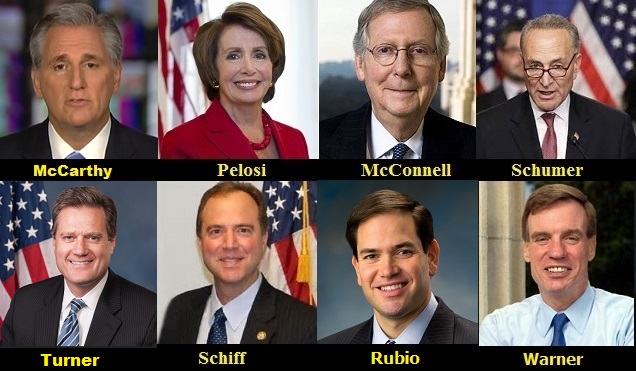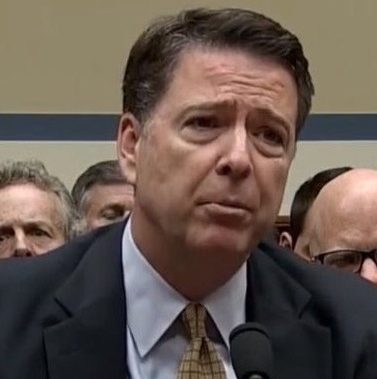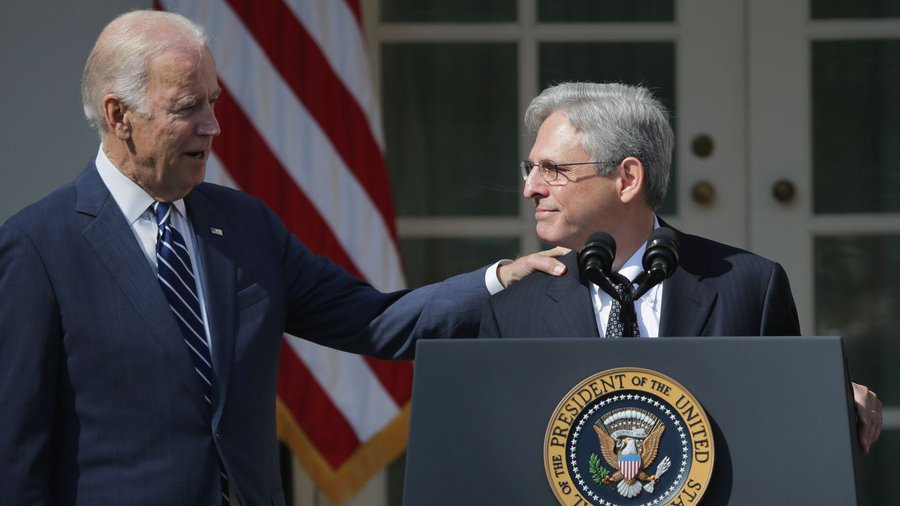Trump’s Espionage? Washington DC and the Pundits Won’t Talk About This, But I will
Reading all the professional political chatter from both wings of the uniparty bird about the DOJ position on the Trump raid in Mar-a-Lago, something sticks out to me that readers here will relate to, but others, likely not so much. Consider this written to all the reasonable and intellectually honest people.
You see, there is an actual mechanism that is being ignored by members within the professional DC silos and the DC ‘outrage’ stenographers. I was reminded of it when reading the professional obfuscation in the Wall Street Journal as they outlined how Merrick Garland “weighed the raid on Mar-a-Lago for several weeks” prior to August 8.

Technically there is a mechanism for executive branch conflict resolution that involves actual transparency, not the political talking points of the illusion of transparency. However, when the Fourth Branch of Government was created, the conflict resolution measure that provides oversight and escape from accusations of unequal application of law was dispatched. It was dispatched because, well, the unequal application of the law was the intent.
What I am talking about is the legislative branch oversight mechanism known as the Gang-of-Eight. Whenever the executive branch runs into a conflict that involves sensitivity within an issue they define as “national security,” the executive branch is supposed to use the tool of the legislative branch to extricate themselves from the conflict.
Quite simply the DOJ/FBI could have briefed the Go8 on the nature of the sensitive ‘national security’ issue, and this bipartisan briefing to both democrats and republicans removes Main Justice from the appearance of political impropriety. If, later on, the nature of their investigation is ever questioned, Main Justice (the representatives of the executive branch) have the shield of telling the American public that congress was notified.
That is essentially the intent of the Gang of Eight construct. Leaders and key officials within both parties are informed of ongoing investigative activity that involves the national security of the United States. That’s the mechanism for the DOJ and FBI to avoid the appearance of political targeting.
 On March 20, 2017, we saw for the first time how the newly weaponized DOJ and FBI had intentionally and purposefully begun to stop that notification process as part of their intentional effort to politically weaponize the justice dept. {link}
On March 20, 2017, we saw for the first time how the newly weaponized DOJ and FBI had intentionally and purposefully begun to stop that notification process as part of their intentional effort to politically weaponize the justice dept. {link}
In that March 2017 hearing, former FBI Director James Comey was asked why the FBI was investigating President Trump for the past eleven months (April ’16 origination), revolving around a Trump-Russia collusion investigation, and not informing congress about the potential national security compromise.
James Comey justified the targeting operation and lack of notification by saying, “because of the sensitivity of the matter(?)” while looking uncomfortable & surprised with the question from representative Elise Stephanik.
The outlook of unilateral authority without oversight lies at the heart of the Trump-Russia collusion and targeting problem. The lack of transparency, and failure to follow the required briefing schedule to congress, was as subtle as a brick through a window, showcasing the political intents of the FBI and DOJ under the Obama administration.
The FBI and DOJ (executive branch) cannot operate unilateral political targeting operations and simultaneously permit oversight (legislative branch). That was the issue spotlighted in the answer from James Comey.
Unfortunately, what Comey outlined was the central issue DC politicians, including republicans, needed to avoid admitting… And so, they pretended the admission by James Comey didn’t exist, brushed it away under the cloud of media assisted outrage on other matters, and just moved on.
In the current dynamic of the DOJ/FBI -vs- Donald Trump Mar-a-Lago raid, we see an almost identical scenario. Not surprisingly we also see identical action from the DOJ/FBI in not briefing the Gang of Eight about the post-election Trump investigation. It becomes clear the DOJ National Security Division is intent to avoid any transparency if they were held accountable for following the checks-and-balances.
Obviously, the DC stenographers (MSM) will avoid pointing out this issue; and obviously the right wing of the DC UniParty (republican leadership) will avoid mentioning how this conflict resolution mechanism exists. However, their willful blindness doesn’t negate the fact the mechanism does exist.
If AG Merrick Garland and FBI Director Chris Wray wanted to avoid what Wray has previously called, “even the impression of impropriety,” the DOJ could simply have briefed congress on the issues and challenges related to President Trump and their perceived problem with classified documents.
The reality of Main Justice not seeking to avoid their conflict, stands as a stark reminder how they consider the mechanism of oversight as a risk to their intent.
The absence of congressional notification is evidencing how the targeting by Main Justice is political.

(Wall Street Journal) […] Mr. Garland now faces a more momentous decision that will further sharpen an already unprecedented and politically fraught situation: whether to pursue charges against Mr. Trump or any of his allies over their handling of the records at issue and their interactions with Justice Department officials seeking to retrieve them.
A decision to bring charges in the matter against Mr. Trump or any of his allies would thrust the Justice Department deeper into a political environment in which the former president’s supporters and Republican lawmakers are already accusing Mr. Garland and the department of overreach.
[…] Republicans on the House Judiciary Committee sent letters Monday to Mr. Garland and FBI Director Christopher Wray seeking documents and communications related to the search. While the department is unlikely to agree to that request while the investigation is ongoing, such scrutiny would likely only intensify if Republicans gain control of Congress in November.
Justice Department officials have defended the Mar-a-Lago search as a necessary step approved by Mr. Garland himself. People familiar with the Justice Department’s approach have said a primary goal of the search was to ensure the security of highly sensitive national-security documents after the Trump team didn’t relinquish them and amid concerns that the security of the material at Mar-a-Lago had been put at risk. (more)




Post a Comment